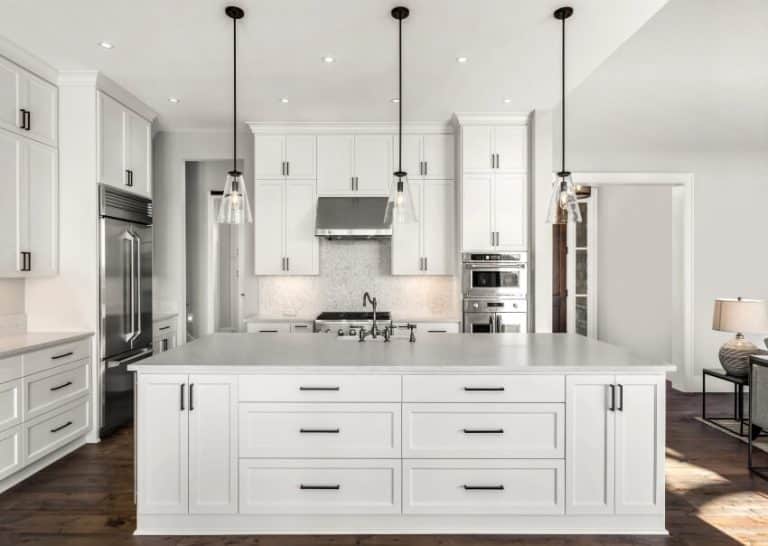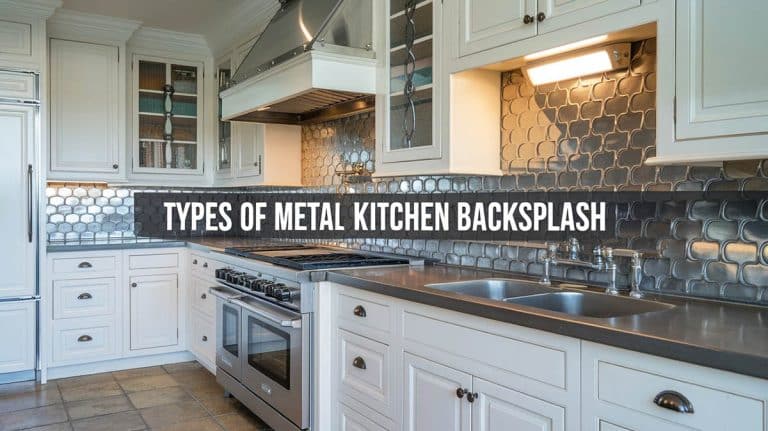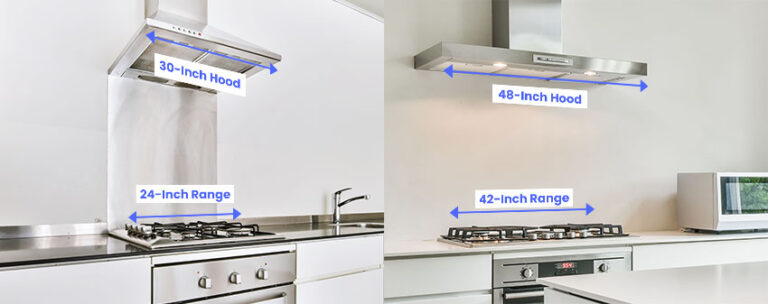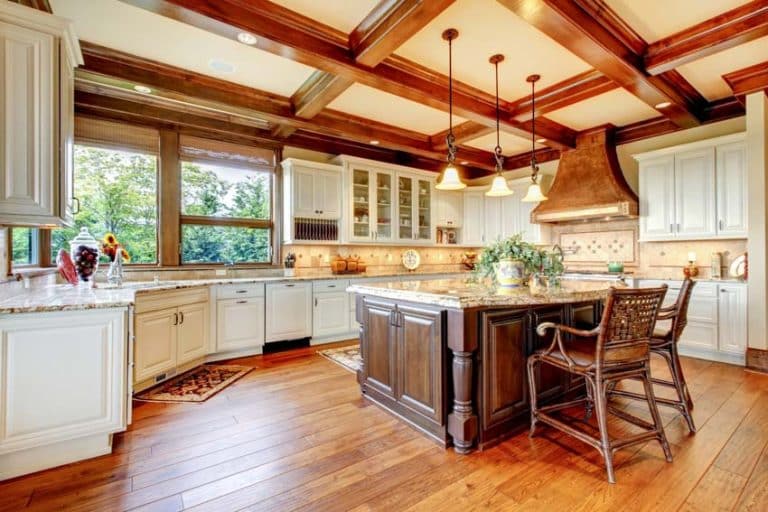Should You Consider Limestone Kitchen Countertops?
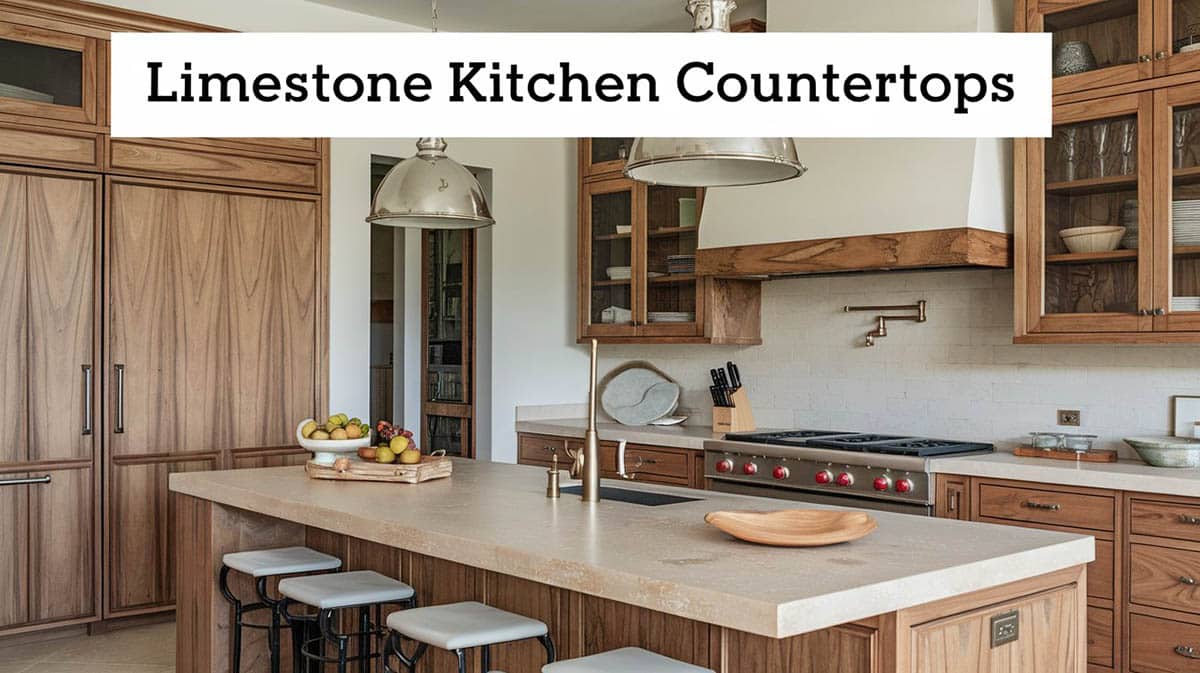
Limestone has some qualities that make it an interesting choice for kitchen countertops. Limestone is made from miscellaneous exoskeletons from coral, shells, algae, and even calcium carbonate. Weighing the pros and cons of the material you select for your countertops is crucial. Limestone, in particular, is a beautiful natural stone and is also heat resistant. Unfortunately, this material also requires much more upkeep than other types of natural stone countertops. Limestone is a very porous material, meaning it can easily stain. It is also naturally lighter, meaning the stains are much more visible. This being said, the stone is typically a more competitive price to compensate for its need for upkeep
Limestone Countertop Pros and Cons
Here are the limestone countertop pros and cons, including the different advantages and disadvantages of this kitchen countertop material. These surfaces have become popular throughout the years, and if you want to know why, checking out their best characteristics is the key.

Upload a photo and get instant before-and-after room designs.
No design experience needed — join 2.39 million+ happy users.
👉 Try the AI design tool now
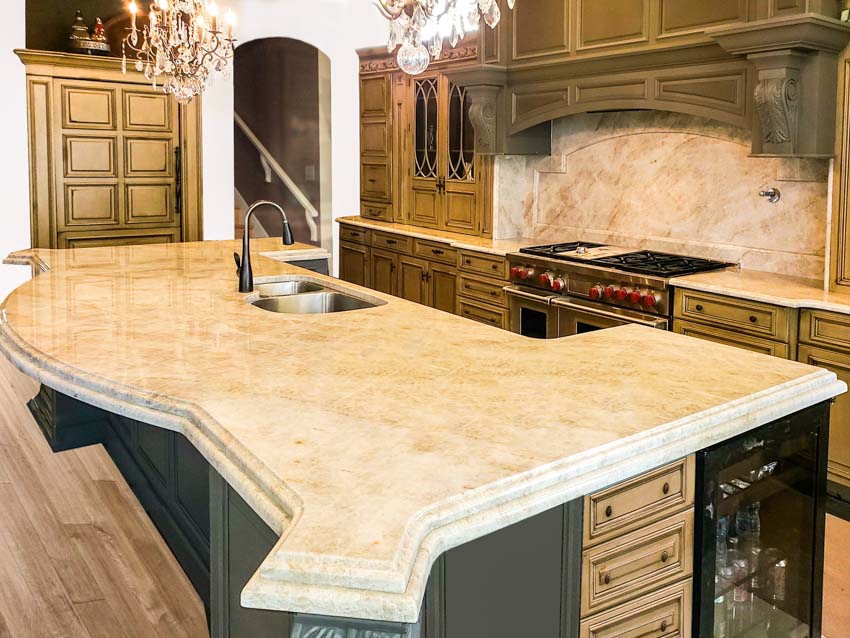
Pros of Limestone
From durability and quality to strength and functionality, there are wide options of characteristics that can serve as an advantage. For a limestone kitchen counter, here are some of the strengths that they can offer you:
• Elegant aesthetics: The stone is considered one of the most elegant stones in the world, showcasing a minimalist style but with neutral colors, including white, gray, brown, ivory, and beige. But it can also come in bold colors. In addition to that, it also has natural patterns from the stone’s unique fossilization, adding charm and timeless appeal to the countertops.
• Flexible in its style: Besides their elegance, the material is highly flexible, which means that they can fit whatever design you may have going for your kitchen.
• Added value to your home: These stone countertops can add value to your home, being a popular choice for many buyers when checking out their kitchens. If you remodel your kitchen or bathroom with this material, it can increase the value of your home and its charm to buyers.
• High durability: Limestone is a durable material, making it a great consideration for the bathroom and kitchens. Since it is also heat-resistant, placing a hot plate or pan on top of the surfaces is not a problem.
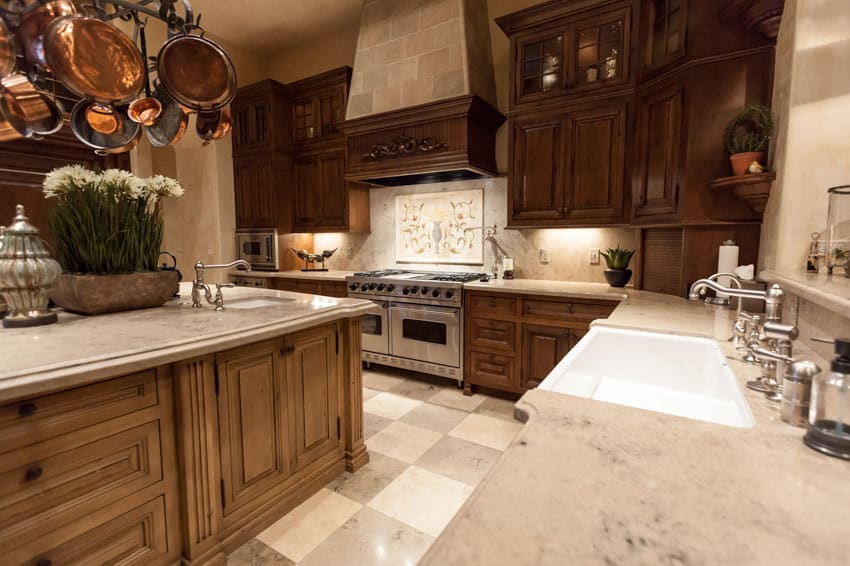
• Long lifespan: This stone has a long lifespan and its proof and testament lie on many iconic buildings and historical landmarks, which are made from the same material that are still standing today.
• More affordable than marble and granite: When considering natural stone, its price point is affordable and cheaper than countertops made from other natural stones (granite or marble kitchen countertops).
• Environment-friendly: Considering these counters are not made using chemicals and are all-natural from stone, this makes them eco-friendly and not harmful to the environment.
• Can be polished: The surface is smooth and granular, which can be polished but not to the point that they shine as much as they do with granite or marble countertops.
• Wide variety of options: Besides its elegant style and unique patterns, the stone surfaces also come in various colors and textures. There are many choices to consider!
Cons of Limestone
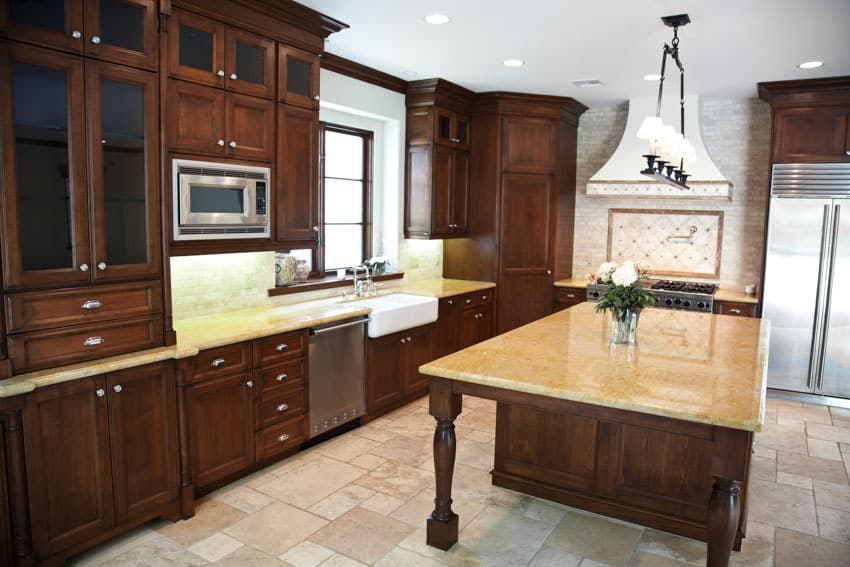
Limestone kitchen countertops are a popular choice primarily because of the many benefits they offer. Despite their abundance, several precautions must be taken once you decide to install limestone countertops in your kitchen and home.
• Not resilient to stains and scratches: While the counter may be durable, the natural stone is porous and soft, which means that it has the tendency to easily scratch and stain. This might be a big disadvantage when you install it in the kitchen that’s why if you choose these countertops, be careful of pointy and hard materials (And never use the countertops as a cutting board!).
• Requires more careful maintenance: Considering it is a sensitive material, there is a more careful approach to its upkeep and maintenance. This means that if you don’t have the time and patience to tend to your natural stone they may not be a good option for you. Prevention is better than finding a cure, so use your materials with care so that you won’t have to keep on treating it for damages. Besides that, though, these counters just require the right cleaners to keep them in good condition.
• Susceptible to acids: Limestone has calcium carbonate in it, a material that reacts badly with acids, from coffee and ketchup to wine. You should be extra careful when preparing acidic food on your counters. See more related content in our article about the different types of countertop overlays on this page.
Limestone Countertop Cost
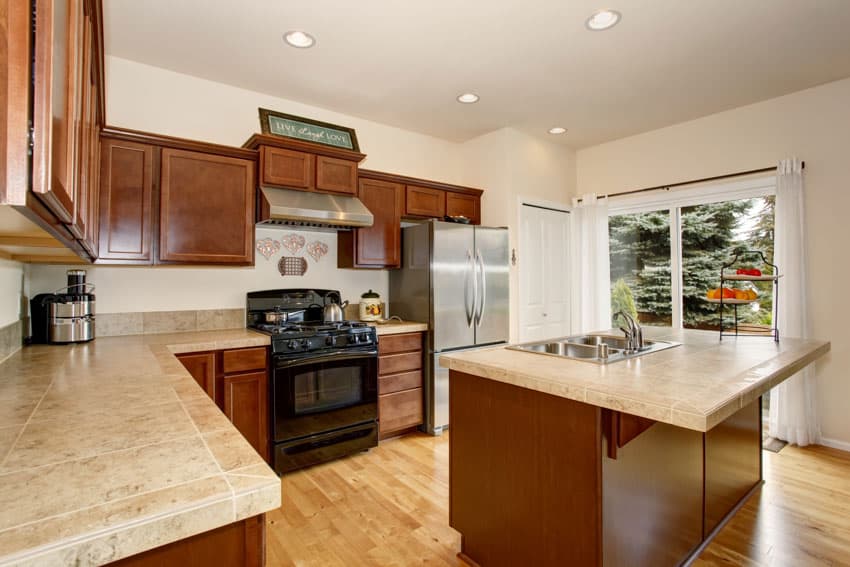
As mentioned previously, Limestone is on the less expensive side when comparing it to granite and marble. The price of this type of natural stone countertop does have some variations though. Based on the color, impurity levels, and the type of countertop, the price can fluctuate slightly, just as any other type of countertop.
- Slab Limestone countertops typically run between $300 and $450 per countertop.
- Tile Based limestone countertops typically run around $2 to $11 per square foot.
These prices are so different because the type (Tile versus Slab) is bought in different ways; you only need one slab, while it takes a ton of tile to cover an entire countertop. These prices are for materials only.
Adding a good $20 to $120 per square foot for delivery and installation can make a big difference, and natural stones are not easy do-it-yourself installations; these prices can change depending on the sizes of the slabs or the number of tiles that need to be laid. On top of that, anything custom or certain colors can up the price a bit. Check your local stores to get a good idea of exact pricing.
Another thing you need to worry about in the initial pricing of this natural stone is the initial sealant, grout , and polish. These can add to the price tag but are extremely important for a safe and usable countertop.
Is Limestone More Expensive than Granite?
Limestone is less expensive than granite. Granite is one of the more expensive natural stones due to its lack of abundant supply. Granite is tough and has very distinct veining in each piece, making it difficult to get a ton of the same appearance. Limestone is common in places such as Europe making it easier to obtain, especially in larger quantities. While it is most common for granite countertops to be more expensive than limestone, there are certain cases where a rare piece from a faraway country could be more expensive than a small local piece of granite.
Granite is more expensive for a good reason. The maintenance of limestone surfaces is a great deal more than granite, and the weight and elegance are even more powerful when it comes to granite. While it is a beautiful piece of stone, there are many risks of damaging the stone countertops.
Limestone Vs Travertine
Travertine countertops are a type of limestone. Travertine is made up of a softer material called calcite and thus often has porous areas, while limestone is much denser. Manufacturers often add resin fillers to travertine which may not make it ideal for countertops and should not be used for heated flooring.
Limestone is generally brighter in appearance than travertine. Often travertine starts out as bright white from the manufacturer and will soften over time. By contrast, travertine often has a more ivory look to it. Travertine surfaces will generally be lower maintenance than travertine but will still require proper sealing and care.
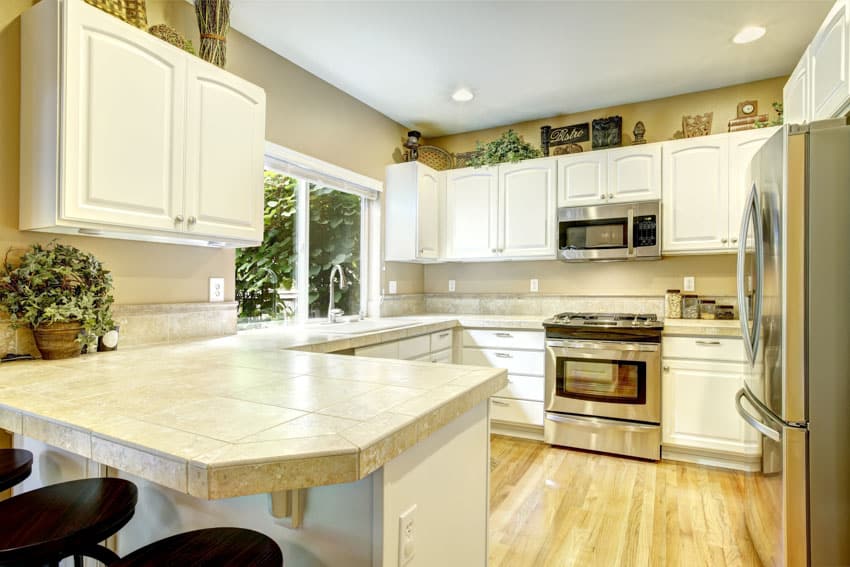
How to Treat Limestone Surfaces
Travertine countertops can be EASILY ruined. It is extremely important to take care of the surfaces to avoid staining and destroying the beautiful natural look. Coasters, cutting boards, dish mats and place-mats are essential when it comes to taking care of the countertop. Getting into a cleaning and sealing routine are the best ways to avoid the risks listed below that con come from mistreating a natural travertine countertop.
Scratches – It is very susceptible to scratching, but luckily, small ones can be buffed out. To avoid scratching the countertops, take care never to cut anything on the surface of the countertops. Place-mats, coasters and other protective surfaces are good ways to avoid scratching the surface of the countertops.
Staining – As mentioned previously the stone is a porous material, meaning it absorbs any spills that find its way onto the countertop. Acidic liquids are the worst, Lemon juice and tea specifically, this also means certain cleaning supplies are not recommended. Any spills need to be wiped up immediately.
Even hot pots and pans can burn stains into the fragile countertop surface. Accidents do happen though, so there is a way to get the stains out. Making poultices using flour and hydrogen peroxide can help get the stains out of the countertop if you cannot get the spills off before they create a stain or burn. For a similar look with a more durable surface one may want to consider white granite countertops.
How Do You Maintain Limestone Counters?
To best maintain a travertine kitchen counter while protecting the above-mentioned potential there are certain cleaning and sealing techniques that need to be followed. It is a tough stone, but it is porous and many liquids can seep into the surface.
Sealing – Sealing is super important when it comes to maintaining and protecting natural travertine countertops. When the countertops are first installed they should come professionally sealed. Following that the countertops should be resealed once every year to keep them in the best condition and avoid unnecessary staining. The best type of sealer to use is a water-based sealer to help keep some water off of the natural stone counters. As an extra precaution you can also use dual sealing cleaning sprays on a weekly basis.
Cleaning – The cleaning of travertine is needed and it is important to read the instructions on the cleaning supplies as the material has negative reactions to bleaches and other acidic cleaning sprays and chemicals. Natural stone cleaning supplies are the best way to go to avoid staining and etching. Using natural stone cleaning products that are biodegradable and non-toxic can help brighten the finish without creating any damage to the countertop finish.
For an easier time maintaining a limestone kitchen counter one could use a matte or honed finish instead of a polished finish.- interior designer Savannah
This makes the countertop easier to buff out any small scratches without noticing as well as it makes fingerprints and smudges less noticeable, making less maintenance needed. Even with ‘less’ maintenance though, it is still important to keep up proper sealing and cleaning on the natural travertine countertops.
For more related kitchen designs, check out our gallery of white quartz materials for kitchens.

